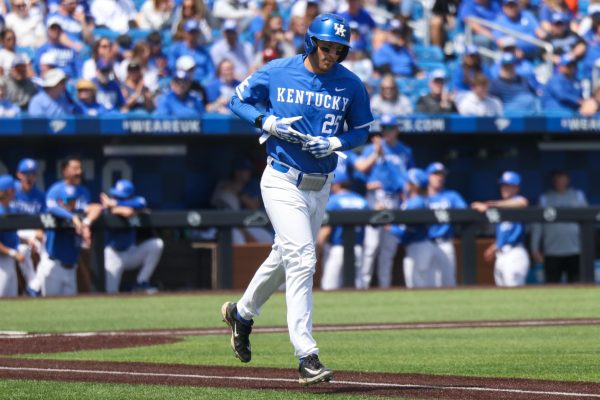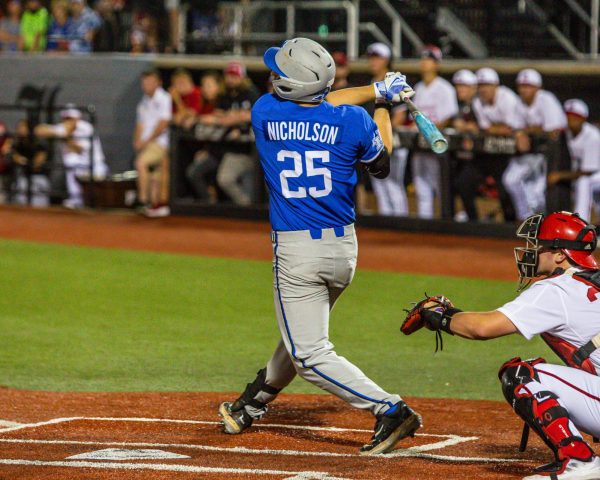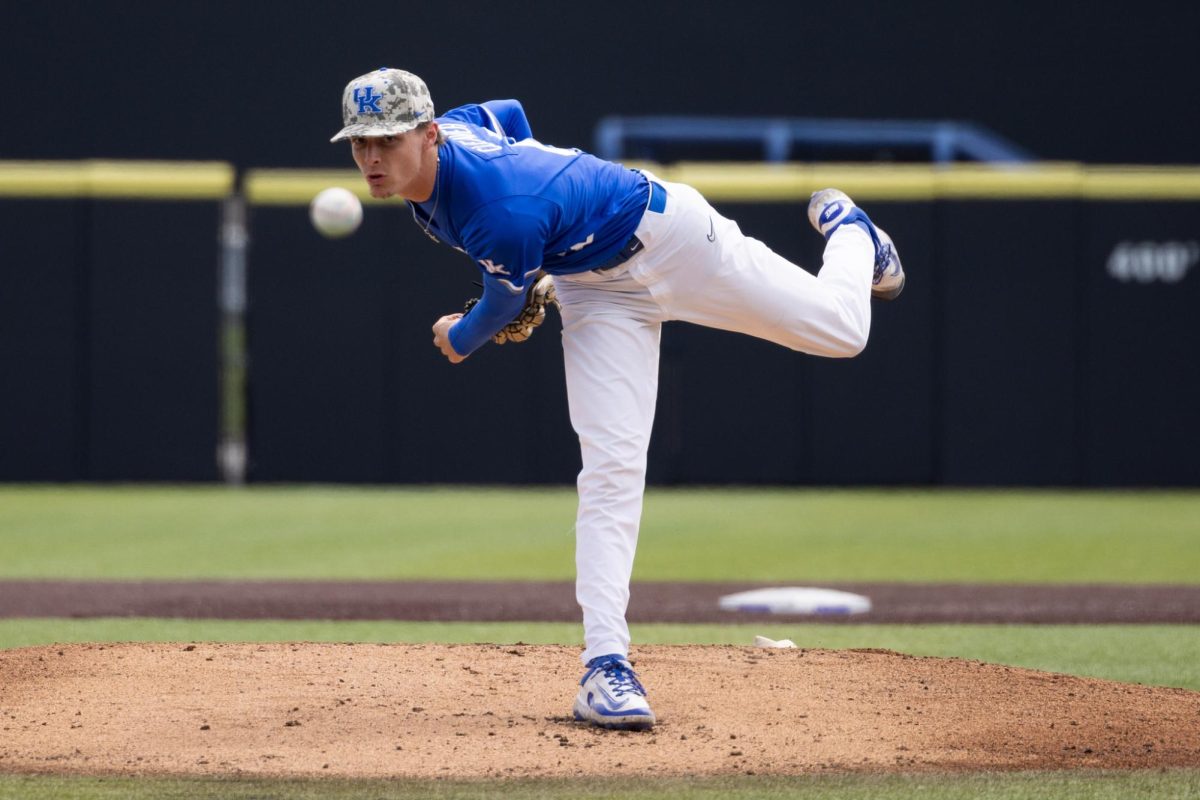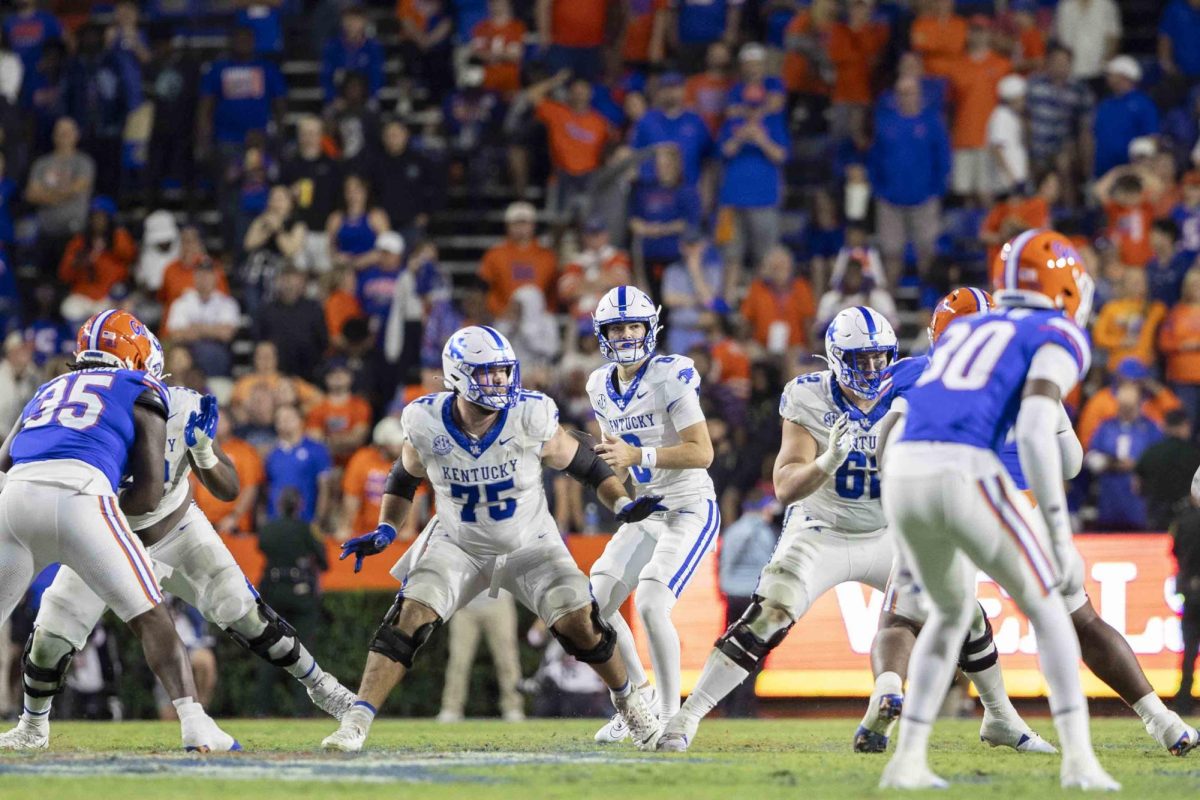Now that the dust has fully settled on Kentucky baseball’s run in the Men’s College World Series after losing 15-4 to the Florida Gators, there were a plethora of things that led to UK’s unfortunate exit.
From a struggling offensive lineup to a lack of pitching depth, it’s unsurprising Kentucky went out when it did, but the once mighty Cats’ — projected No. 1 overall for a good chunk of the season — fall is worth a second look nonetheless.

First and foremost, the Wildcat offense went cold at the absolute worst time. Starting after the Lexington Regional three-game sweep, several Cats entered extended slumps.
The first one started at the top of the lineup with Ryan Waldschmidt as he went 0-15 in the Super Regional and the College World Series. The Wildcat leadoff hitter did draw seven walks, but for someone who had been a cornerstone of the offense, the lack of production was too much to handle.
Moving two spots down in the lineup, Devin Burkes, who manned the three hole for every game except for the season finale when he slid down to fifth, went 1-18, which was a .055 batting average with two drawn walks.
With the three hole being such a critical spot in the order as teams want the middle of the lineup coming to the plate with runners on, it was hard for the offense to get rolling with the lack of production from the top.
Another key part of the lineup is the bottom, which can flip it over to the top with runners on-base. Unfortunately for Kentucky, the bottom of the lineup really struggled during the stretch as well.
James McCoy — in the eight spot in the lineup — hit .100 as he went 1-10 with three walks since the beginning of the Lexington Super Regional. His struggles led to him being pinch hit for a few times during the final few ballgames.
Rounding out the order in the nine hole was Grant Smith, who battled several injuries but was still in the lineup and finished 0-15 in the “Supers” and into Omaha.

With dead zones spread throughout the lineup, equaling nearly half of it, those not slumping had difficulty maximizing runs with their at-bats, something that often made the difference in games.
Another key factor that resulted in the “OmaCats” being cut short was the lack of pitching depth.
Throughout the Lexington Regional and even Super Regional, pitching never became a concern because everything went according to plan.
However, when Mason Moore was defeated in game two of the College World Series against Texas A&M, it really exposed the lack of depth and made things near impossible for the Wildcats.
In order to advance to the finals of the World Series, the Cats would’ve needed to win three games in what turned into two days after a rain delay and it’s likely they would’ve only had ace Trey Pooser for the winner-take-all final to advance and, even then, he’d be on short rest.
With its back against the wall, Kentucky was forced to start Dominic Niman, who had not pitched a ton in the postseason and remained in a massive slump on the hill.
Unsurprisingly, Niman’s struggles continued in the most important game of the season as he did not make it out of the first inning without giving up three runs before departing with runners on second and third, which turned into a grand slam that put the Wildcats down 7-0 after one inning.
Overall, the lack of depth in Kentucky’s starting rotation and bullpen reared its head at the worst possible time and sent the OmaCats back to Lexington.
When pairing the pitching struggles with a slumping hitting core, there wasn’t much left to win games against the best of the best in college baseball in Omaha and, with all those ingredients in the pot, Kentucky perfected the recipe for disaster that ended its historic season.
Now moving into the offseason phase, Kentucky will look to build upon a fantastic year of baseball and create a roster less prone to the mistakes that cost it in 2024.





























































































































































